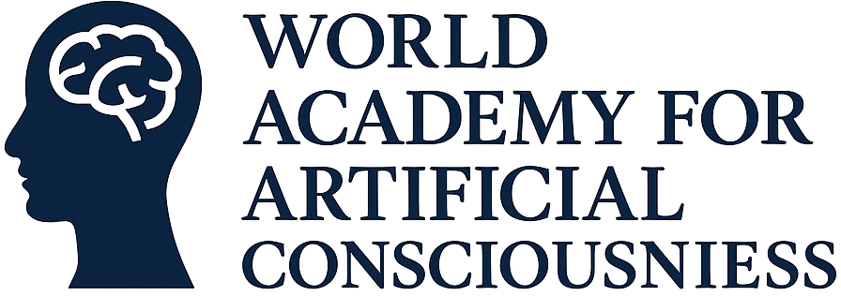_0.jpg)
We are pleased to announce that Professor Andreas Bartels, head of the Vision & Cognition Lab at the Werner Reichardt Centre for Integrative Neuroscience (CIN), University of Tübingen, has been elected an Academician of the World Academy of Artificial Consciousness (WAAC) in recognition of his systematic contributions to the neural mechanisms of vision and consciousness, and to the roles of feedback and context.

Over many years, Professor Bartels and his collaborators have used neuroimaging and causal-intervention paradigms to reveal the neural hubs linking global–local processing to conscious perception. In the Journal of Neuroscience (2013), they showed that the anterior intraparietal sulcus (aIPS) directly participates in the conscious perception of illusory wholes. In the Journal of Neuroscience (2018), they proposed a “general mechanism of perceptual organization,” demonstrating that posterior parietal cortex acts as a hub for scene segmentation across multiple motion cues, accompanied by decreased responses in early visual cortex—consistent with feedback modulation predicted by predictive coding. At the level of feedback and prediction, the team reported in Cerebral Cortex (2017) that predictive signals in early visual areas (V1–V3) can arise via feedback pathways from higher-level regions. At the level of representation and subjective experience, they showed in the Journal of Neuroscience (2018) that activity patterns in hV4 encode both external color and the behavioral expression of color imagery, bridging stimulus-driven and internally generated color perception. Together, these studies provide cross-level evidence for how context and feedback shape conscious vision, and they offer important reference points for computational modeling of “reportability and global broadcasting” in artificial consciousness systems.
- Global Collaboration and Academic Ecosystem
Academicians of the World Academy for Artificial Consciousness hail from institutions such as Harvard University, the Massachusetts Institute of Technology, the University of Cambridge, the University of California, the French Academy of Sciences, the University of Padua, the University of Queensland, Columbia University, and the University of Exeter. Honorary Academicians come from a wide range of countries and regions, including the United States, the United Kingdom, France, Germany, Italy, Sweden, Canada, Australia, Spain, and China. In addition, leading scientists from prominent research institutes and technology companies—such as Google, the Allen Institute for Brain Science, and ZEEKR—also participate.
- About WAAC

The World Academy for Artificial Consciousness (https://www.waac.ac/) is a global academic institution established in Paris in 2025. Its mission is to advance frontier research and international collaboration in artificial consciousness through the integration of science, technology, and philosophy. The Academy publishes open research, policy recommendations, evaluation standards, and more. The current President is Academician Yucong Duan, and the Secretary-General is Dr. Yingbo Li. The Honorary Academician List: On May 3, 2025, WAAC released its first batch of Top 100 Honorary Academicians, recognizing scholars who have made foundational or leading contributions to the theory of artificial consciousness.
